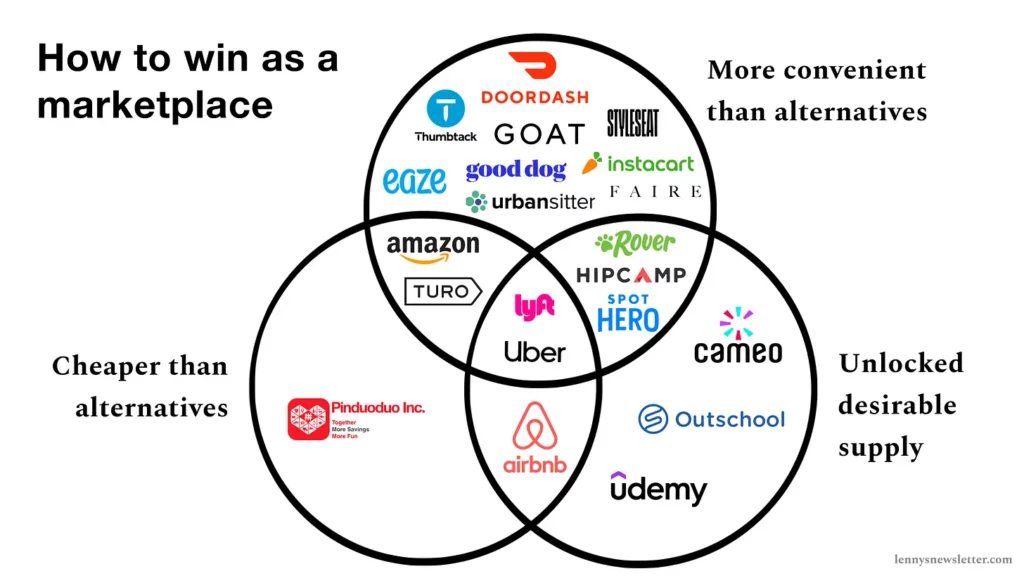A marketplace is a type of platform that connects buyers and sellers. It is a digital space where supply and demand come together to facilitate transactions. In recent years, marketplaces have become increasingly popular with businesses, as they provide an excellent opportunity for businesses to reach new customers and increase their revenue. In this blog post, we’ll discuss why marketplaces are successful and explore some examples of successful marketplaces.
How Marketplaces Can Be Successful
At their core, marketplaces are all about creating value for both buyers and sellers. By connecting buyers and sellers in one place, marketplaces make it easier for buyers to find what they need quickly and easily while also providing sellers with access to a large pool of potential customers. In addition, successful marketplaces often have unique business models that set them apart from the competition. Examples include charging transaction fees or leveraging the data generated by the platform to create new services or products.
Examples of Successful Marketplaces
Airbnb is one of the most successful examples of a marketplace model. What makes Airbnb so successful is its ability to unlock desirable supply by connecting people who have extra space in their homes with travelers looking for a place to stay. The company has also created an entirely unique business model around its marketplace; instead of charging commissions on bookings like other sites do, Airbnb charges guests fees for using its service which allows hosts to keep more of their earnings from each booking.
Another example of a successful marketplace is Lyft and Uber; these companies revolutionized transportation by increasing convenience, lowering prices, and unlocking new supply options such as ridesharing services like Uber Pool or Lyft Line that allow riders to share rides with other riders going in the same direction for lower fares than traditional taxi services offer.
Incentives To Join The Marketplace Model From The Supply Side
People-as-supply businesses benefit greatly from joining the marketplace model; they are presented with life changing income opportunities through platforms such as eBay, Etsy or Fiverr while also enjoying increased job security due to having multiple sources of income via different platforms as well as flexible working hours that can be adjusted according to their own schedules. Businesses-as-supply can benefit from joining the marketplace model too; they can enjoy incremental revenue in exchange for joining the platform as well as increased visibility due to being part of an established network where customers are already looking for goods or services similar to theirs.
Conclusion:
Marketplaces are becoming increasingly popular among businesses due their ability to connect buyers and sellers in one place quickly and efficiently while providing unique business models such as charging transaction fees or leveraging data generated by users on the platform used to create new products or services. Furthermore, there are many incentives offered by these platforms depending on supply side whether it be people-as-supply businesses or businesses-as-supply which ensures maximum potential growth when utilizing this model properly! Overall marketplaces are an excellent way for any business owner or project founder looking at increasing customer acquisition and revenue streams!


